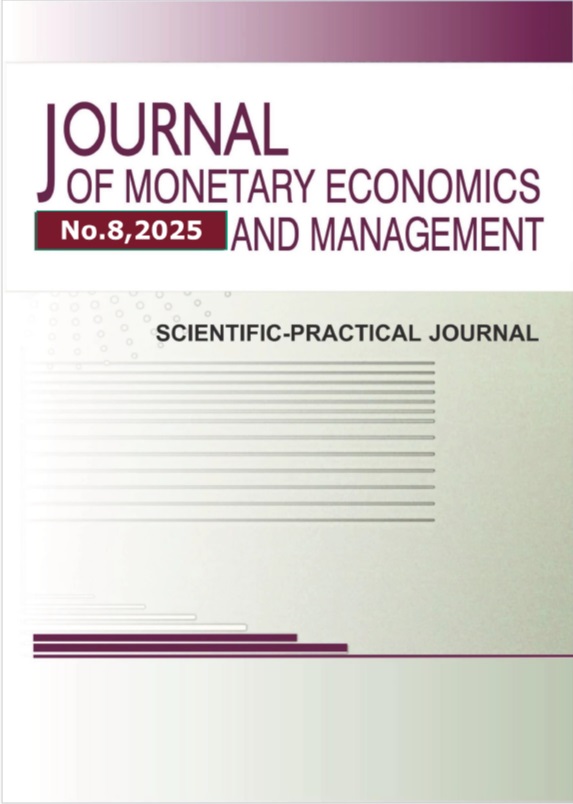employee
Moscow, Moscow, Russian Federation
employee
This article presents an analysis of domestic and international corporate practices aimed at integrating artificial intelligence (AI) technologies into personnel selection processes. It focuses on the specific needs of people with disabilities and analyzes international legal norms and standards that govern the use of AI in employment. The article identifies risks associated with algorithmic bias in AI against people with disabilities, and develops recommendations for adapting international best practices to domestic legislation. The conclusions and recommendations presented in this article are of practical importance for specialists working on government support measures for vulnerable groups.
artificial intelligence, discrimination against persons with disabilities, state regulation of inclusive labor markets, algorithmic biases, discrimination
1. Pasport nacional'noy programmy "Cifrovaya ekonomika Rossiyskoy Federacii", utverzhdena prezidiumom Soveta pri Prezidente Rossiyskoy Federacii po strategicheskomu razvitiyu i nacional'nym proektam protokol, 24 dekabrya 2018 g. №16. // Garant. 2025. https://internet.garant.ru/#/document/72190282/paragraph/1/doclist/61/1/0/535a7e63-3e2f-4c3b-814f-fc6d6e7a5815/ (data obrascheniya: 10.10.2025).
2. European Union Artificial Intelligence Act. Reglament Evropeyskogo Soyuza ob iskusstvennom intellekte // ANO "Cifrovaya ekonomika". 2024. URL: https://ai.gov.ru/knowledgebase/dokumenty-po-razvitiyu-ii-v-drugikh-stranakh/2024_reglament_evropeyskogo_soyuza_ob_iskusstvenom_intellekte_ano_cifrovaya_ekonomika_/ (data obrascheniya: 10.10.2025).
3. General data protection regulation (GDPR). // Regulation (EU) 2016/679 on the protection of natural persons with regard to the processing of personal data and the free movement of such data. 2016. URL: https://eur-lex.europa.eu/EN/legal-content/summary/general-data-protection-regulation-gdpr.html (data obrascheniya: 10.10.2025).
4. Blinnikova A. V., Ying D. K. Ispol'zovanie iskusstvennogo intellekta v processah upravleniya chelovecheskimi resursami // Vestnik universiteta. 2020. № 7. S. 14-21.
5. Zhuzhgina, A. A. Pravovoy analiz vliyaniya sistem iskusstvennogo intellekta na zanyatost' lyudey s ogranichennymi vozmozhnostyami v Rossiyskoy Federacii / A. A. Zhuzhgina. — Tekst: elektronnyy // Pravo v epohu iskusstvennogo intellekta: perspektivnye vyzovy i sovremennye zadachi: sbornik nauchnyh statey po materialam MNPK foruma «VI Sibirskie pravovye chteniya», g. Tyumen', 17-19 oktyabrya 2024 g. / gl. red. S. S. Zenin; otv. red. L. V. Ivanova; Ministerstvo nauki i vysshego obrazovaniya RF, Tyumenskiy gosudarstvennyy universitet, Institut gosudarstva i prava. Tyumen': TyumGU-Press, 2024. S. 142–145.
6. Klyuchevye rabotodateli po II v Rossii. //AC TAdviser. 2024. URL: https://www.tadviser.ru/index.php/%D0%A1%D1 (data obrascheniya: 10.10.2025).
7. Microsoft i «Perspektiva» v partnerstve s Unilever, Philip Morris International, IBM i Sun Pharma proveli sovmestnuyu mentorskuyu programmu dlya studentov s invalidnost'yu. // Microsoft Sourse. 2025. URL: https://news.microsoft.com/ru-ru/mentor-student-2020/ (data obrascheniya: 10.10.2025).
8. Nikonova O. D., Aman'cheeva A. K., Zaharyan A. R., Chibirova O. K. Problemy trudoustroystva i zanyatosti lyudey s invalidnost'yu v usloviyah cifrovizacii rynka truda // Kreativnaya ekonomika. 2025. T. 19. № 8. S. 2107-2126. DOI:https://doi.org/10.18334/ce.19.8.123639.
9. Novikov D. A. Ispol'zovanie iskusstvennogo intellekta pri nayme rabotnikov: problemy i perspektivy pravovogo regulirovaniya. // Journal of Digital Technologies and Law. 2024. №2(3). S. 611-635. URL: https://doi.org/10.21202/jdtl.2024.31 (data obrascheniya: 10.10.2025).
10. Novradova-Vasiliadi S. M. aktual'nye problemy diskriminacionnyh riskov v sfere zanyatosti // Obrazovanie i pravo. 2024. №4. URL: https://cyberleninka.ru/article/n/aktualnye-problemy-diskriminatsionnyh-riskov-v-sfere-zanyatosti (data obrascheniya: 26.10.2025).
11. Taran K.K. Formirovanie v ES normativno-pravovoy bazy, reguliruyuschey otnosheniya po ispol'zovaniyu iskusstvennogo intellekta // Vestnik Universiteta imeni O. E. Kutafina. 2023. №2 (102). URL: https://cyberleninka.ru/article/n/formirovanie-v-es-normativno-pravovoy-bazy-reguliruyuschey-otnosheniya-po-ispolzovaniyu-iskusstvennogo-intellekta (data obrascheniya: 28.10.2025).
12. Tehnologii iskusstvennogo intellekta Sbera otkryvayut novye vozmozhnosti dlya raboty lyudey s invalidnost'yu. //Sberbank. 14 aprelya 2025. URL: https://www.sberbank.ru/ru/sberpress/all/article?newsID=ec3be50b-b4bf-4908-ac1d-c5adcda9c233&blockID=1303®ionID=77&lang=ru&type=NEWS (data obrascheniya: 10.10.2025).
13. Sushkova A. II v nayme: kak izbezhat' diskriminacii i ne poteryat' talanty. // Delovoy mir. 2024. URL: https://shrm-res.cloudinary.com/image/upload/AI/2024-Talent-Trends-Survey_Artificial-Intelligence-Findings.pdf (data obrascheniya: 10.10.2025).
14. Shuraleva, C. V. O vliyanii cifrovyh tehnologiy na pravovoe regulirovanie truda i zanyatosti uyazvimyh grupp rabotnikov / C. V. Shuraleva // Vestnik Permskogo universiteta. Yuridicheskie nauki. № 4 (71). 2023. S. 645-661.
15. Dhruvitkumar T. Artificial Intelligence and unintended bias: A call for responsible innovation // SSRN. 2021. URL:https://dx.doi.org/10.2139/ssrn.5201757 (data obrascheniya: 10.10.2025).
16. GenAI for accessibility: more human, not less // EY. 2024. URL: https://www.ey.com/content/dam/ey-unified-site/ey-com/en-uk/services/ai/documents/ey-gen-ai-for-accessibility-more-human-not-less.pdf (data obrascheniya: 10.10.2025).
17. Global Disability Inclusion Report. Accelerating Disability Inclusion in a Changing and Diverse World. A Multi-stakeholder. // Report for the Global Disability Summit. 2025. URL: https://g3ict.org/blogs/the-third-global-disability-summit-april-2025 (data obrascheniya: 10.10.2025).
18. Glazko K. et al. Identifying and improving disability bias in GPT-based resume screening // Proceedings of the 2024 ACM Conference on Fairness, Accountability and Transparency. 2024. S.687-700. URL: https://dl.acm.org/doi/pdf/10.1145/3630106.3658933 (data obrascheniya: 10.10.2025).
19. Menze J. AI's double-edged sword: A new frontier for employment of people with disabilities? // International Labour Organization. 2025. URL: https://www.ilo.org/resource/article/ais-double-edged-sword-new-frontier-employment-people-disabilities (data obrascheniya: 10.10.2025).
20. Omri A., Omri H., Afi H. Exploring the impact of AI on unemployment for people with disabilities: do educational attainment and governance matter? // Frontiers in Public Health. 2025. T. 13. URL: https://pmc.ncbi.nlm.nih.gov/articles/PMC12000049/ (data obrascheniya: 10.10.2025).
21. Patil D. et al. 2024. Machine learning and deep learning: Methods, techniques, applications, challenges, and future research opportunities // Trustworthy Artificial Intelligence in Industry and Society, Deep Science Publishing. 2024. S. 28-81. URL: https://doi.org/10.70593/978-81-981367-4-92 (data obrascheniya: 10.10.2025).
22. Quinn G. Rights of persons with disabilities: report of the Special Rapporteur on the Rights of Persons with Disabilities // UN Human Rights Council. 2021. URL: https://digitallibrary.un.org/record/3956054?v=pdf (data obrascheniya: 10.10.2025).
23. WHO Disability Assessment Schedule (WHODAS 2.0). // WHO. Geneva. 2010. URL: https://www.who.int/standards/classifications/international-classification-of-functioning-disability-and-health/who-disability-assessment-schedule (data obrascheniya: 10.10.2025).









